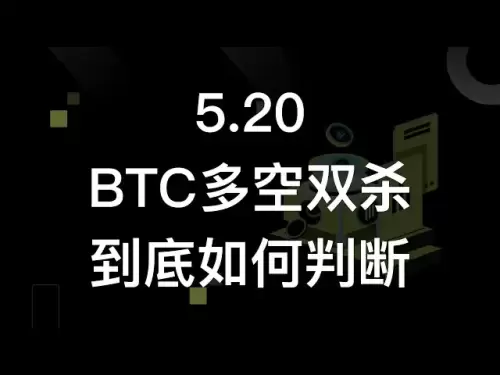 |
|
 |
|
 |
|
 |
|
 |
|
 |
|
 |
|
 |
|
 |
|
 |
|
 |
|
 |
|
 |
|
 |
|
 |
|
Cryptocurrency News Articles
Bitcoin (BTC) Could Emerge as Inflation Hedge if Trump Tariffs Undermine U.S. Dollar, Says Messari
Apr 19, 2025 at 11:37 pm
As former President Donald Trump ramps up calls for increased tariffs, crypto research firm Messari suggests the resulting trade tensions

In a surprising twist to the crypto narrative, former President Donald Trump's persistent calls for increased tariffs could ultimately pave the way for Bitcoin's emergence as an inflation hedge, according to a new analysis by crypto research firm Messari.
As Trump continues to flounder in his attempts to get the administration to ramp up tariffs once again, the resulting trade tensions might fundamentally shift Bitcoin's role in the global financial system, Messari's Enterprise Research Analyst Dylan Bane suggests in a recent analysis.
If tariffs ultimately weaken the U.S. dollar's dominance, then Bitcoin (BTC) could be recognized as a credible inflation hedge and a long-term store of value—much like gold, which has traditionally served as an inflation hedge.
Currently, Bitcoin remains highly correlated with U.S. equity markets, specifically the S&P 500. At times, this correlation has exceeded 70%, which aligns with the view of Bitcoin as a risk-on asset that's closely tied to the tech sector's performance.
However, Bane believes this correlation could change over time as Trump's tariff agenda unfolds.
"Over time, we believe [tariffs] could lead to Bitcoin decoupling from U.S. equities," Bane said. "It may increasingly be viewed not as a tech stock proxy or risk-on trade, but as a credible inflation hedge and long-term store of value."
The analysis highlights that sustained tariff policies could undermine the U.S. dollar's status as the world's reserve currency, a shift that would have dramatic implications for global finance.
"Continued tariffs could catalyze structural economic change," Bane explained, adding that this change may lead to "a decoupling of Bitcoin from traditional assets as it gains recognition as an independent store of value."
If the U.S. dollar's global supremacy comes into question, then Bitcoin could stand to benefit, especially among investors seeking a hedge against fiat currency devaluation and rising inflation.
Disclaimer:info@kdj.com
The information provided is not trading advice. kdj.com does not assume any responsibility for any investments made based on the information provided in this article. Cryptocurrencies are highly volatile and it is highly recommended that you invest with caution after thorough research!
If you believe that the content used on this website infringes your copyright, please contact us immediately (info@kdj.com) and we will delete it promptly.
-

-

-

-

-

-

-

-

- Circle Internet Financial, the issuer of the USDC stablecoin, is exploring a potential sale to Coinbase or Ripple
- May 20, 2025 at 05:25 pm
- Circle Internet Financial, the issuer of the USDC stablecoin, is exploring a potential sale to Coinbase or Ripple, sources told Fortune—a move that could shift the company away from its planned public listing.
-






























































